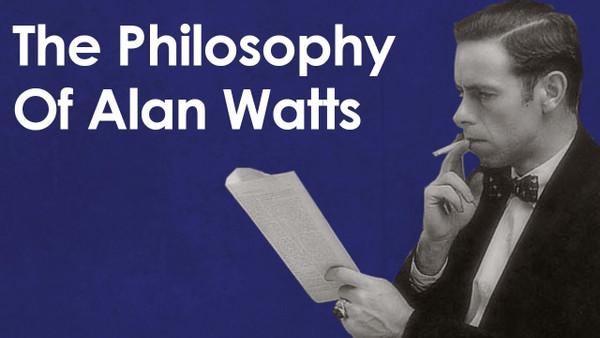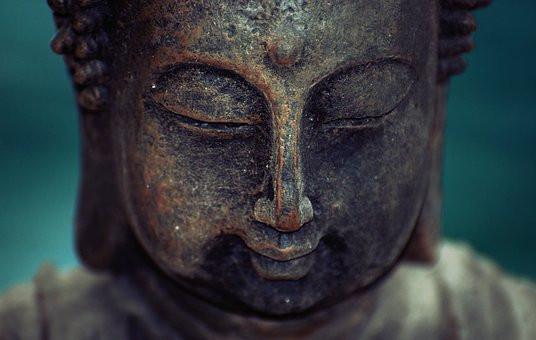The Philosophy Of Alan Watts - Making Sense Of Senselessness
Curated from: Pursuit of Wonder
Ideas, facts & insights covering these topics:
8 ideas
·20.1K reads
81
2
Explore the World's Best Ideas
Join today and uncover 100+ curated journeys from 50+ topics. Unlock access to our mobile app with extensive features.
Alan Watts
British American philosopher Alan Watts was born in 1915.
He is known for translating and imparting Eastern philosophy to the Western world. He popularised Buddhist and Zen principles in the West and inspired the beat and hippie movements in the United States during the 60s and 70s, causing a major cultural shift from traditional western values.
192
3.53K reads
Alan Watts's early life
Watt's interest in Eastern philosophy comes from enjoying Chinese and Japanese storybooks in his childhood as well as his attraction to Eastern aesthetics.
He was raised a Christian but found that Christianity's methods of understanding and dealing with life left him unfulfilled and often with more problems than solutions, such as the true nature of the universe, the self, the meaning of life and how to deal with it. He rejected the idea of an authority figure controlling the universe.
174
2.8K reads
Drawn to Buddhism
Watts was drawn further into Buddhism because there is a universal consciousness in Buddhism, where everything is interconnected and interdependent of a singular essence to life that follows its own nature with no boss.
Every object and person is just an expression of this universal nature and follows its nature for the mere sake of itself. Watts wanted to share his peace and connection with the Westerners.
195
2.72K reads
Ideas about humanity
Watts found that the Western world was often obsessed with status, wealth, consumption and success. Yet, even when they achieved success, they still appeared to remain lost and disconnected from themselves, their fellow humans and nature.
Watts thought that the Western religious idea of an absolute morality and authoritative God did not help the westerner and their ability to resolve these behaviours or help any spiritual essence in themselves.
188
2.55K reads
An ego in a bag of skin
Self-identification is mainly regarded as ego. As a result of our ego, we tend to feel as if we are detached from what we are observing. Therefore, if there is an I or Me observing, then my internal must be separate from my external.
Watts refers to this as the sense that we are an ego in a bag of skin. But in Zen, Watson's teachings on this concept are incorrect and a source of most of our alienation, anxiety, suffering and subsequent hatred.
According to Zen and Watts, we are none of the things we identify with but are everything and everything in us.
224
2.31K reads
Organism environment
Watts defined the term organism-environment not as an organism in an environment, but as an organism and an environment simultaneously.
We are also a feature of the whole, therefore we are the whole.
184
2.16K reads
Defining success
Within the Watson Zen school of thought, success in life is not to change the world or acquire wealth or have the greatest status or power.
The ultimate goal is to become deeply synchronised with nature itself and to realise your behaviour is one with the behaviour of the rest of the world.
Realising one's unimportance has the potential to open the door to a new realm of meaningfulness.
246
2.02K reads
Criticism of Watts's ideas
For Watts, the ideas he shared were not easy and did not resolve all the challenges of being human. Those who knew him did not find him without struggle, inner conflict or vice.
Yet, his attempts at understanding the spiritual essence are not without value. Perhaps it is not the exact accuracy of any philosophical idea that is important but what the idea can do for us.
169
2.06K reads
IDEAS CURATED BY
Kyron Ito's ideas are part of this journey:
Learn more about videos with this collection
Understanding the concept of the self
The importance of living in the present moment
The illusion of control
Related collections
Similar ideas
3 ideas
How to study when you feel unmotivated ✨ *3 easy tips*
Janice Studies
5 ideas
Is Stress Good For You?
Curious Tangents
2 ideas
10 Best Tips for Writing your Book Blurb
Writing with Jenna Moreci
Read & Learn
20x Faster
without
deepstash
with
deepstash
with
deepstash
Personalized microlearning
—
100+ Learning Journeys
—
Access to 200,000+ ideas
—
Access to the mobile app
—
Unlimited idea saving
—
—
Unlimited history
—
—
Unlimited listening to ideas
—
—
Downloading & offline access
—
—
Supercharge your mind with one idea per day
Enter your email and spend 1 minute every day to learn something new.
I agree to receive email updates




